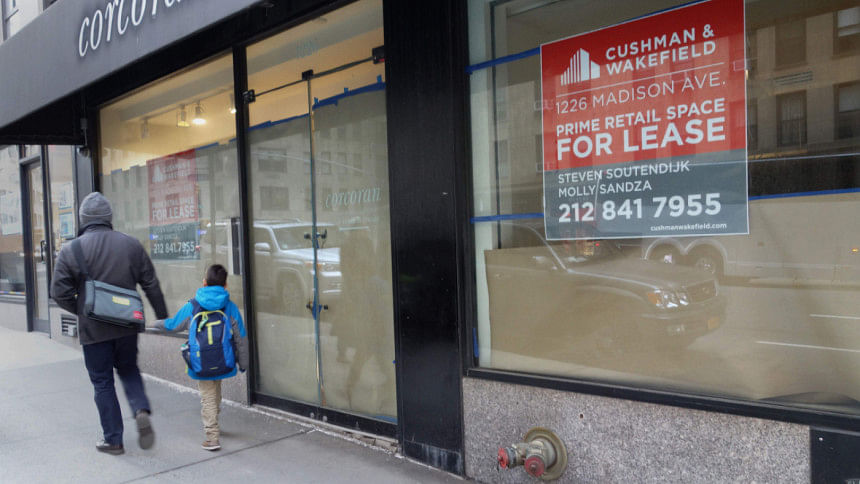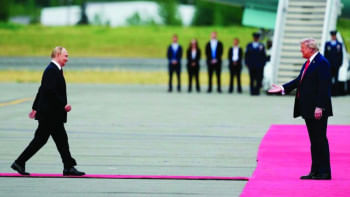In high-priced Manhattan, more and more empty stores

The New York borough of Manhattan is richer and more populated than ever, but a growing number of businesses are closing their doors under the pressure of exorbitant rents and online commerce.
On Wednesday -- which happens to be Valentine's Day -- Steven Telvi will close down his Upper East Side drugstore, The Source, after nearly 37 years.
It fell victim to slower business and high rent, he says.
"The whole island is going down the tube," Telvi says of small business in Manhattan.
From Soho to the Upper West Side, passing Fifth Avenue or the Meatpacking District, it is no longer rare to see two or three deserted storefronts on the same block, right in the middle of the Big Apple, a shopper's paradise.
Nearly all the economic indicators of America's largest city look positive: historically low unemployment; per capita income 34 percent above the national average; more than 61 million tourists last year.
Business people and property agents interviewed by AFP all cite skyrocketing rents as the primary cause of the business closures.
Rents rose 68 percent between 2009 and 2016 in Soho, 70 percent in parts of the Upper West Side, and 175 percent in places on Fifth Avenue, according to the Real Estate Board of New York (REBNY).
"This is a classic example of pricing outstripping demand and fundamentals in a market," said Brian Klimas, REBNY's vice president in charge of research.
Prices have finally started to fall over the past few months in numerous parts of Manhattan.
But the proportion of vacant businesses is still rising, to nearly a quarter of spaces in Soho at the end of 2017, according to property firm Cushman & Wakefield.
"Landlords have been slow to change the price point of their retail offering," said Kenneth Hochhauser, executive vice president of Winick Realty Group.
For the shopkeepers who remain, sometimes in tenuous financial circumstances, "it's not helping" to see neighbors disappear, says Clara, a salesperson at ready-to-wear clothes retailer Variazoni on the Upper West Side.
"Business is not very good. There's no (foot) traffic" because there aren't enough businesses, said Jennifer Sun, who opened the Magical Kids store for children's clothing on the Upper East Side in May 2016.
After an "OK" first year, Sun says many surrounding stores have closed "over the last five or six months" -- and activity slowed.
"I don't even have a salary," she said.
Steven Soutendijk, executive director of retail sales at Cushman & Wakefield, said, "it's going to take some time" before the market adjusts.
He talks of "two or three years before it really swings back," but isn't worried.

 For all latest news, follow The Daily Star's Google News channel.
For all latest news, follow The Daily Star's Google News channel. 



Comments